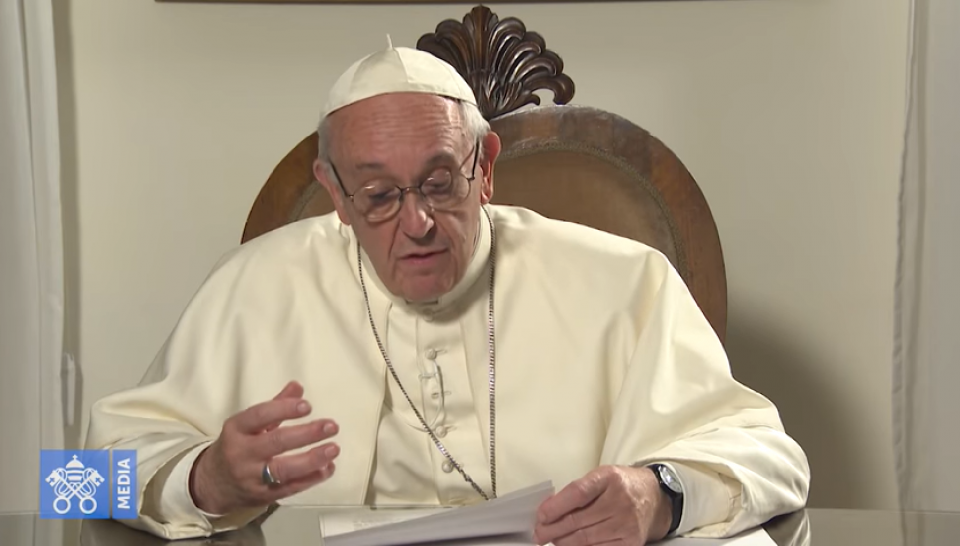On the brink of his visit to Ireland for the Word Meeting of Families, Pope Francis has issued a letter calling for the whole church to show solidarity with victims of clerical sexual abuse, and to end the culture of clericalism
“If one member suffers, all suffer together with it” (1 Cor 12:26). These words of Saint Paul forcefully echo in my heart as I acknowledge once more the suffering endured by many minors due to sexual abuse, the abuse of power and the abuse of conscience perpetrated by a significant number of clerics and consecrated persons. Crimes that inflict deep wounds of pain and powerlessness, primarily among the victims, but also in their family members and in the larger community of believers and nonbelievers alike. Looking back to the past, no effort to beg pardon and to seek to repair the harm done will ever be sufficient. Looking ahead to the future, no effort must be spared to create a culture able to prevent such situations from happening, but also to prevent the possibility of their being covered up and perpetuated. The pain of the victims and their families is also our pain, and so it is urgent that we once more reaffirm our commitment to ensure the protection of minors and of vulnerable adults.”
Referring to the crucial issue of accountability for wrongdoing, the pope writes:
“I am conscious of the effort and work being carried out in various parts of the world to come up with the necessary means to ensure the safety and protection of the integrity of children and of vulnerable adults, as well as implementing zero tolerance and ways of making all those who perpetrate or cover up these crimes accountable. We have delayed in applying these actions and sanctions that are so necessary, yet I am confident that they will help to guarantee a greater culture of care in the present and future.”
On the origins of the clerical abuse issue, Pope Francis writes:
“It is impossible to think of a conversion of our activity as a Church that does not include the active participation of all the members of God’s People. Indeed, whenever we have tried to replace, or silence, or ignore, or reduce the People of God to small elites, we end up creating communities, projects, theological approaches, spiritualities and structures without roots, without memory, without faces, without bodies and ultimately, without lives.[2] This is clearly seen in a peculiar way of understanding the Church’s authority, one common in many communities where sexual abuse and the abuse of power and conscience have occurred. Such is the case with clericalism, an approach that “not only nullifies the character of Christians, but also tends to diminish and undervalue the baptismal grace that the Holy Spirit has placed in the heart of our people”.[3] Clericalism, whether fostered by priests themselves or by lay persons, leads to an excision in the ecclesial body that supports and helps to perpetuate many of the evils that we are condemning today. To say “no” to abuse is to say an emphatic “no” to all forms of clericalism.”
For the full text of the pope’s letter, click here.
~*~
Comment
This brief letter is welcome especially in its brief indictment of the central problem of elitism in the church, a clericalism that devalues the graces of Baptism. However, lack of mention of the role of the Vatican itself in the cover-up, and of specific measures to achieve the accountability of ordained bishops, is likely to provoke the criticism that at its very centre the church still enables unaccountability and clericalism. Once again the most glaring nettle has not been grasped, and this is likely to overshadow Pope Francis’s visit to Ireland this week – unless he intends to address this specific issue while here.
As it is clear to all now that ordination does not confer sanctity and inerrancy, perhaps the pope’s call to lay people to cast off clericalism, and to seek the graces of baptism through prayer and fasting, is an invitation to leadership as well – to be vigilant and intolerant of the culture of silence that still envelops the Irish clerical church. Irish clergy who cannot dialogue with lay people are a most potent source of the alienation that leads so many to abandon weekly worship – but we can all dialogue with one another to build a different church in which all are safe because all are accountable – and able to speak.
Sean O’Conaill


I agree with Seán. I anticipated that the vital nettle would not be grasped . Pope Francis must be a frustrated Pope because of his age and the forces which seem to stand in his way. I am not expecting any great changes in the near future and the wagons might circle once again. In most walks of life, secular or religious, the embedded structures are like ragwort in the fields.